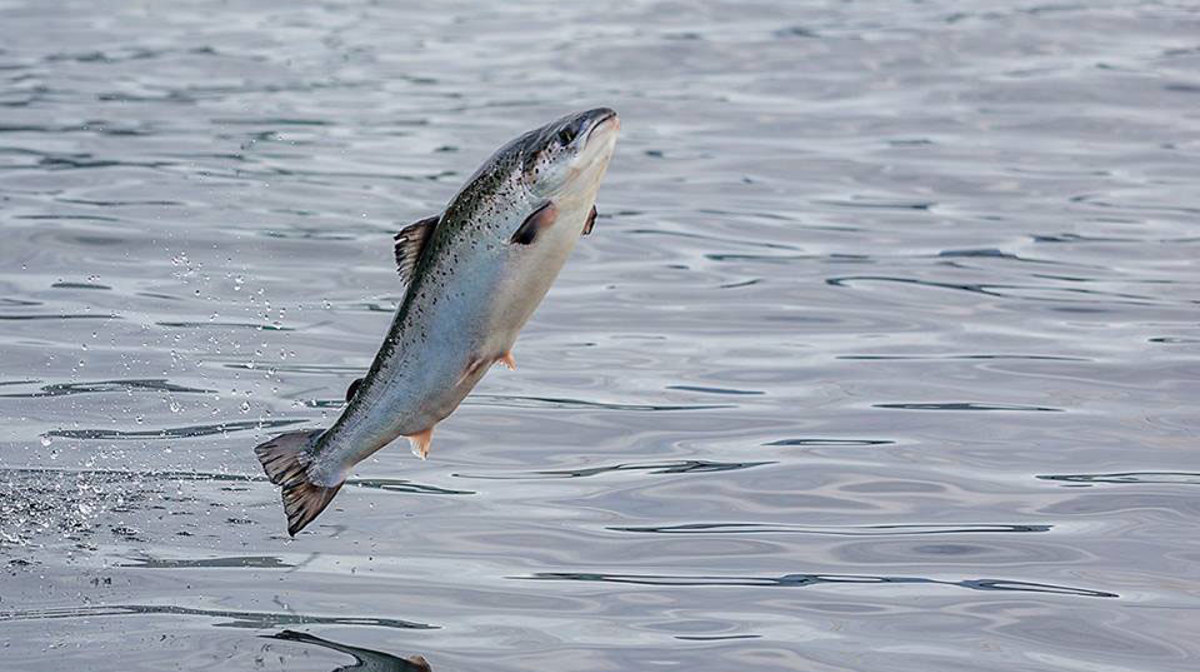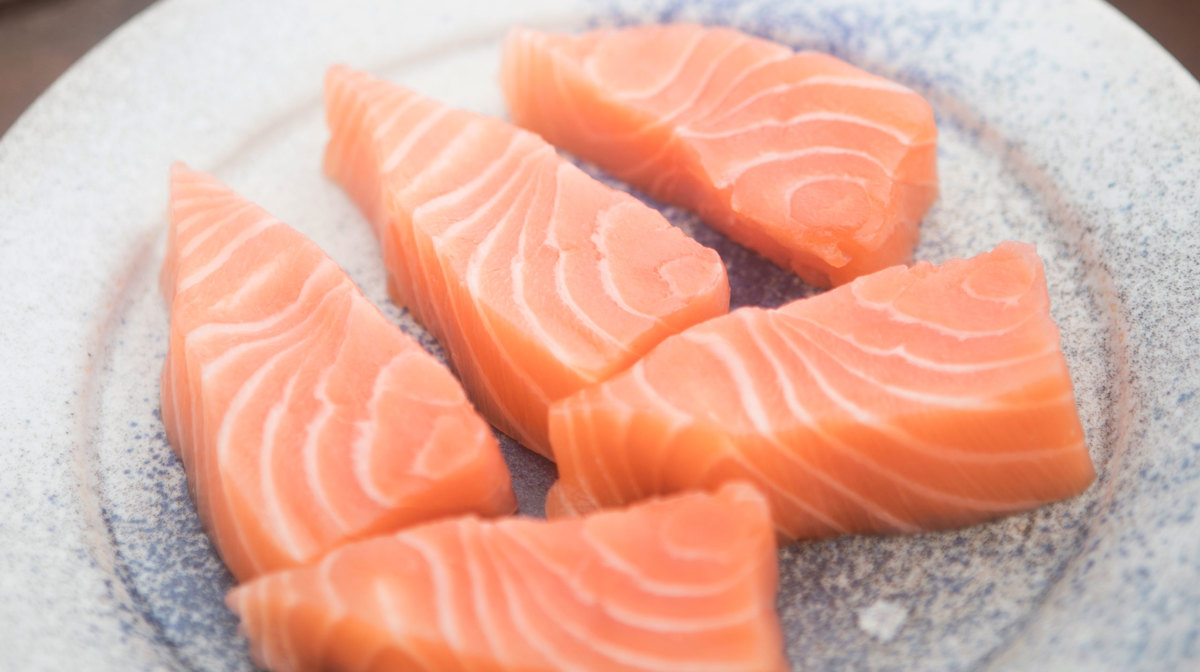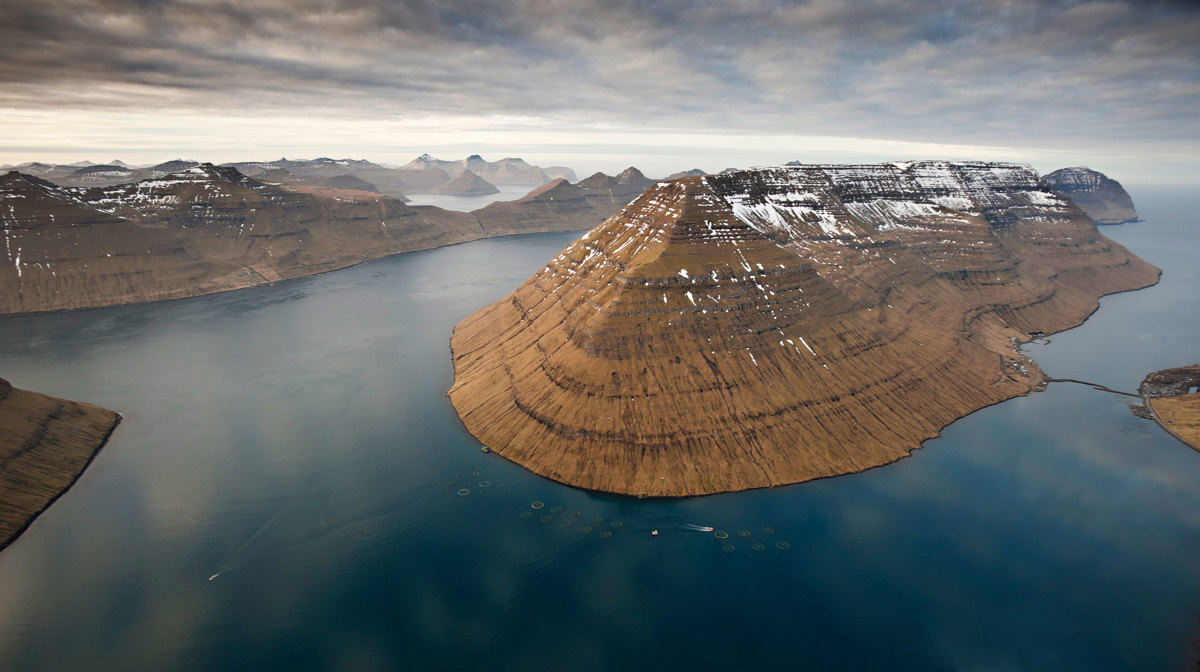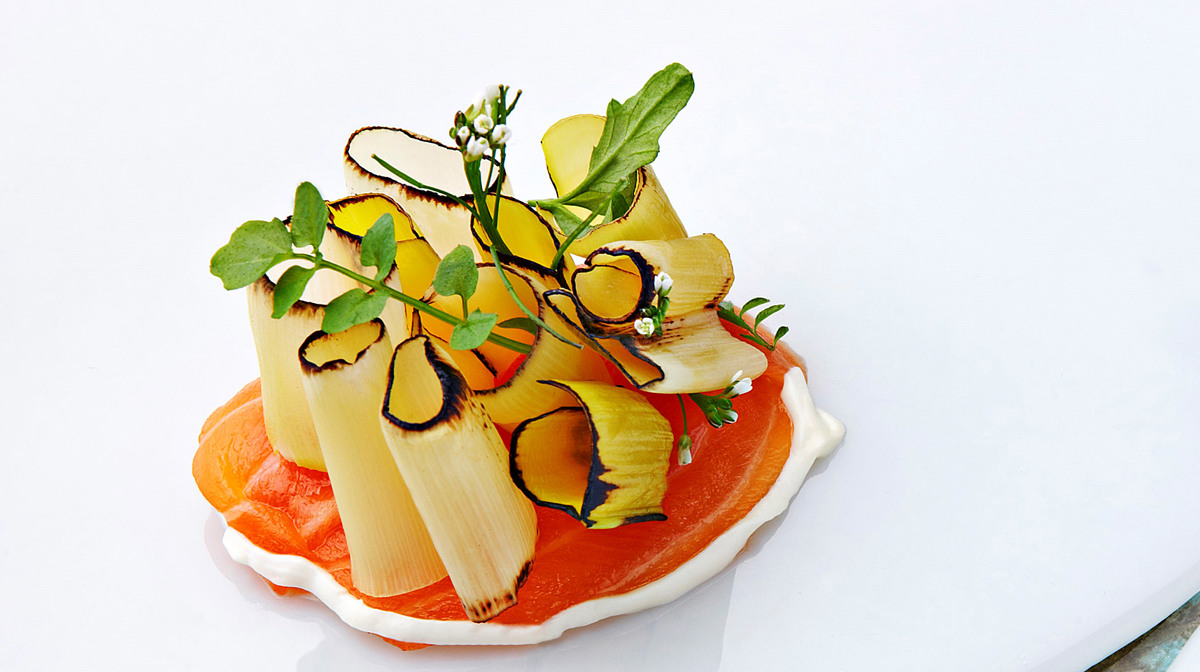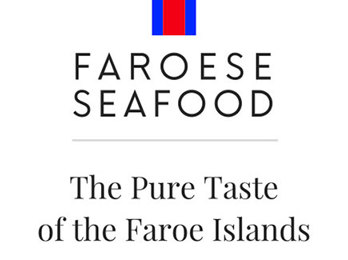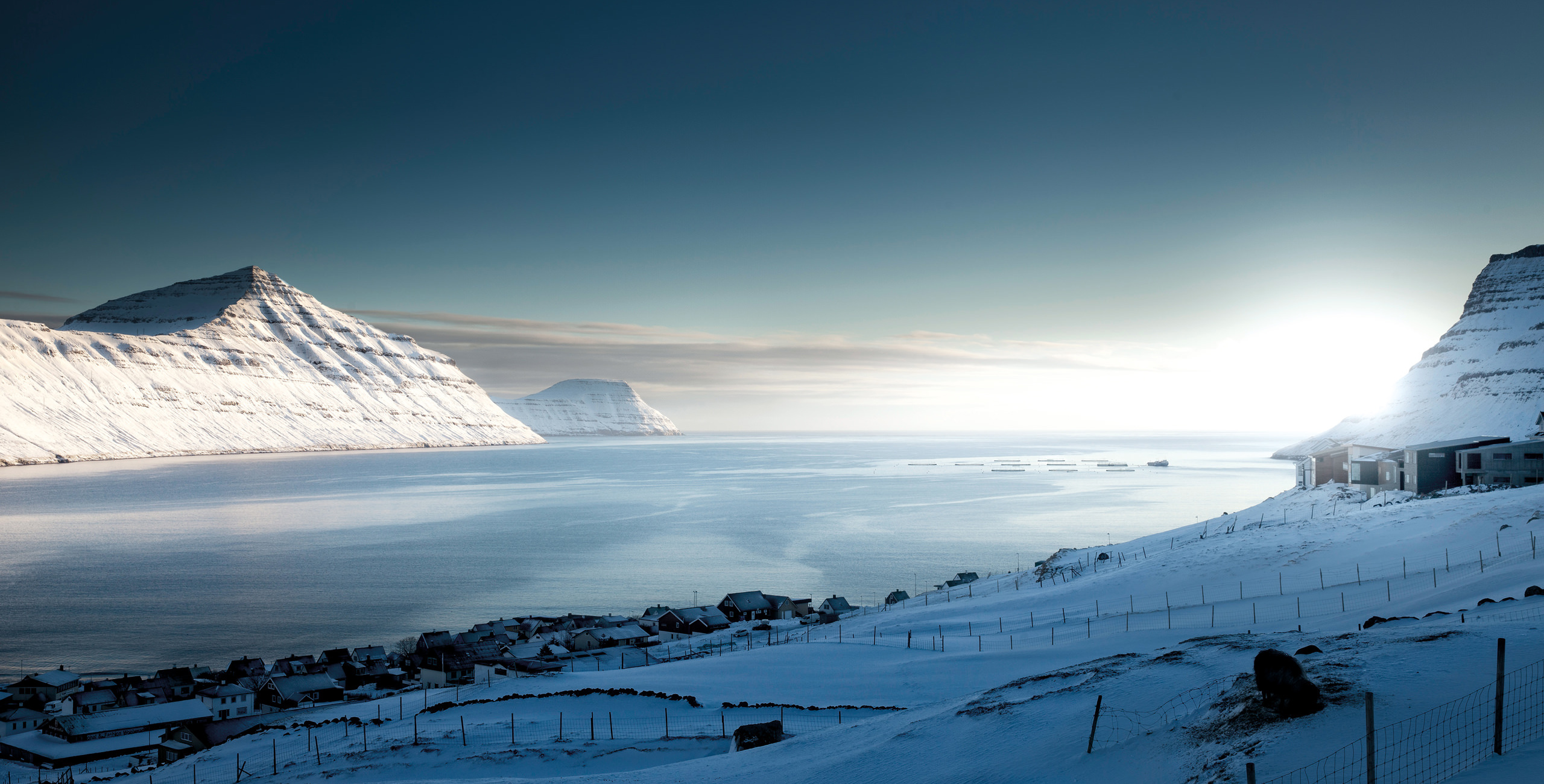
The geographical position of the Faroe Islands is ideal for farming Atlantic salmon. The remote location of the Faroe Islands is complemented by pristine clear waters, cool steady sea temperatures, strong currents and accessible fjords.
The surroundings in the Faroe Islands are the natural feeding ground of wild Atlantic Salmon. Wild salmon leave the rivers of Europe and travel to the feeding grounds around the islands. Here these wild salmon grow and thrive before heading back to the rivers of Europe to spawn.
Atlantic Salmon has adapted to this environment for thousands of years and therefore the Faroese can proudly say that salmon is farmed in its naturally desired surroundings in the Faroe Islands.
A key player on the international market
Farmed salmon is a vital part of the Faroese economy, representing half of the country’s export value and providing valuable jobs for communities around the islands. The combination of ideal natural conditions for salmon farming and a commitment to sustainability and quality is now being recognised around the world. Today, Faroese salmon is exported to all six continents.
The Faroese aquaculture industry, which began in the 1960’s is well consolidated, both horizontally and vertically. There are three fish-farming companies in the Faroe Islands, Bakkafrost, Hiddenfjord and MOWI Faroes. The largest company, Bakkafrost, has been listed on the Oslo Stock Exchange since 2010. Vertical integration allows producers to have full control over the quality of the salmon from feed and smolt to export.
Sustainability – living of the Sea
The Faroese people have lived off the ocean for centuries and have a deep respect for the ocean and the environment.
The Faroese aquaculture industry is committed to sustainability and sound stewardship of the environment.
In 2003, the Faroe Islands implemented one of the most comprehensive and stringent aquaculture veterinarian regulatory regimes in the world, which has been instrumental in ensuring the welfare and quality of the salmon, protecting the salmon from disease and other natural and external pressures.
The goal of the comprehensive legislation was to create the most sustainable salmon production environment in the world. The legislation ensures strict compliance with the highest level of fish welfare and environmental protection possible.
This extensive veterinary prevention programme has been so effective that farmed salmon from the Faroe Islands are completely free of antibiotics.
The Faroese Veterinarian Act on Aquaculture now provides inspiration and guidance for the implementation of sustainable aquaculture standards around the world.
Effective logistics
To maintain fish welfare and freshness, it is imperative that the transport time from on-growing site to market is as short as possible. Due to the small size of the islands, these transport times are extremely short, guaranteeing optimal freshness and quality.
Although the Faroe Islands is located in the middle of the North Atlantic, fresh salmon from Faroe Islands can reach American and Asian markets within 24 hours after being harvested.
The official website – www.FaroeseSeafood.com - gathers information on Faroese fisheries and aquaculture, the main fish species produced in the Faroe Islands, a directory of Faroese seafood exporters and a selection of recipes.
